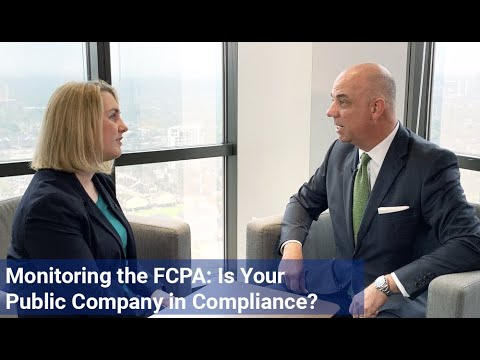Monitoring the FCPA: Is Your Public Company in Compliance?

Jen: This is the PKF Texas Entrepreneurs Playbook. I’m Jen Lemanski and I’m back again with Chip Schweiger, one of our audit directors and a member of our PKF Texas SEC team. Chip, welcome back to the Playbook.
Chip: Thanks, Jen. Good to be back.
Jen: So I’ve heard a little bit in the news about FCPA. What is it and how does it affect public companies?
Chip: Sure so FCPA, also known as the Foreign Corrupt Practices Act, was actually a law that was enacted in 1977 and it generally prohibits the payment of bribes to foreign officials to gain business. It includes, not only the officers and the agents of that company, but also the company themselves.
Jen: Interesting, so why are we just hearing about it now since it’s been around for so long?
Chip: Well, generally the payment of bribes has been frowned upon for a long time; the SEC is starting to take a renewed focus on it in the last couple years.
Jen: So what should companies do to make sure that they’re in compliance?
Chip: Well, the fines and penalties for violations of FCPA for public companies are actually pretty dire. There can be civil money penalties against the officers, directors, and the companies so we suggest that companies re-look at their FCPA programs, get annual training for all their employees, especially those that deal with international countries, and document their policies and procedures.
Jen: So some internal controls work is usually what you guys recommend?
Chip: Absolutely.
Jen: Perfect, well we’ll get you back to talk a bit more about issues affecting public companies. Sound good?
Chip: Sounds great.
Jen: For more information about SEC related topics visit PKFTexas.com/SECesk. This has been another Thought Leader production brought to you by PKF Texas – The Entrepreneurs Playbook. Tune in next week for another chapter.

